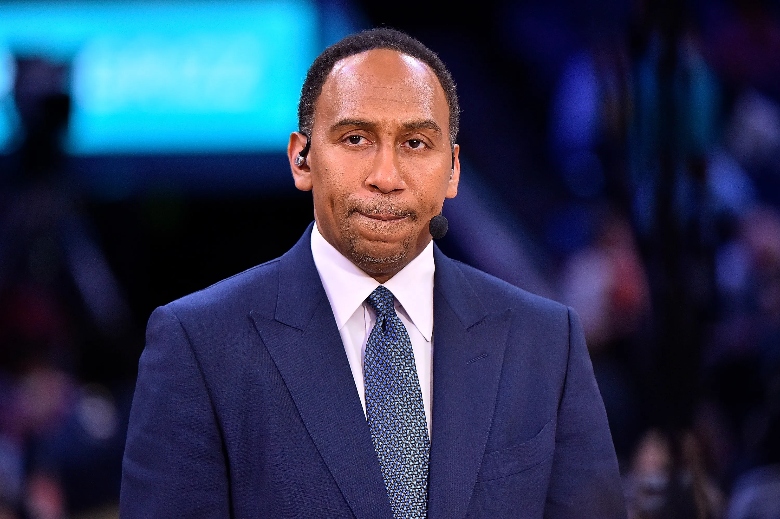Stephen A. Smith, the outspoken sports commentator known for his bold opinions, has shocked fans and political analysts alike with his recent remarks about his political regrets. In a candid critique of the Democratic Party, Smith revealed his dissatisfaction with its leadership, calling out fear-mongering tactics and a lack of substantive policy solutions.
The commentator, who has consistently voted Democrat in the past, now says he is open to considering Republican candidates.
“I don’t want to hear about, ‘Oh, we’re about the law. Nobody’s above the law,’” Smith declared, referencing recent controversies surrounding Democratic leaders. “But then you go out, and you pardon your son, and you try to blame everybody else for it.”
Sale – Top Immunity Support For The Times:
Your immune system can be weakened by poor diet, lack of sleep, and countless other environmental factors. Explore how our products may help support your body’s natural defenses. Save 23% with code: “SAVE23”

Smith’s frustration centers on what he sees as hypocrisy and a failure to provide meaningful solutions to pressing issues.
“I’m no longer interested in listening to a bunch of fear-mongering to tell us who we shouldn’t vote for,” he said. “Why don’t you come up with a plan that tells us why we should vote for you?”
Eric Thompson Show Podcast
Smith’s critique reflects a broader dissatisfaction among some voters who feel disillusioned with the Democratic Party’s focus on rhetoric over results.
The sports analyst emphasized the need for political campaigns to prioritize actionable solutions over fear-based tactics. He argued that politicians should focus on addressing the challenges faced by struggling communities across the nation.
“We’re not about America only, but being about America and prioritizing what’s going on in this nation,” Smith explained. “That is not a crime for an American politician or commander in chief to have that mentality.”
Smith’s comments suggest he is looking for leadership that places the needs of the American people first. He expressed a willingness to support Republicans who campaign on substantive issues and propose realistic policies.
“If Republicans are going to actually campaign on the issues … I’m down for it,” Smith said. “I’m open-minded enough to make sure that they entertain that from a policy perspective. That’s what I want for the American people. That’s what I want for this nation.”
In a surprising twist, Smith suggested he might even consider supporting former President Donald Trump if he runs again. However, he stressed that Trump would need to prove he is worthy of the role.
“What concerned me about Donald Trump, and the reason I voted against him and voted for Kamala Harris, was because I felt that he would be divisive,” Smith explained. “That he would create chaos because he demands such a level of loyalty and fealty to him.”
Smith acknowledged that Trump could regain credibility by demonstrating maturity and prioritizing governance over personal loyalty.
“It can’t be just about fealty to him and loyalty to him. It has to be about getting the job done on behalf of what’s in the best interests of the American people,” he added. “You do things like that, and you show that you’re the adult in the room; I don’t think anybody could dismiss Donald Trump at this particular moment in time.”
Smith’s newfound openness to the GOP marks a dramatic shift from his long-standing political stance. Before the 2024 election, he openly admitted that he had never voted for a Republican. His comments now reflect a growing frustration with the Democratic Party and a willingness to entertain alternatives.
Still, political analysts remain skeptical about whether Smith will follow through with his willingness to vote Republican.
“He’s never done it before,” one analyst noted. “But his comments reflect a larger sentiment among voters who feel disillusioned with the status quo.”
Smith’s remarks contribute to the ongoing national conversation about voter loyalty, political accountability, and the importance of meaningful policy proposals. His critique of fear-based campaigning resonates with many Americans who feel similarly disenchanted.
As the 2024 election draws closer, Smith’s shift in perspective highlights the growing demand for policy-driven leadership and the potential for unexpected political realignments. Whether his comments signal a broader trend among traditionally Democratic voters remains to be seen, but they undoubtedly underscore the need for both parties to address the concerns of a frustrated electorate.
Smith’s candor and willingness to reconsider his political affiliations may inspire others to take a closer look at candidates from both parties. The question now is whether the Democrats will heed his call for accountability and actionable solutions—or risk losing more voters to an increasingly competitive Republican Party.


If Steven Smith listened/saw any pre-election interviews or rallys and still voted for Harris then he’s a f’n idiot. He’s a liar. Did he think her policies, (what are they?) are what he wants or did he vote along racial lines?